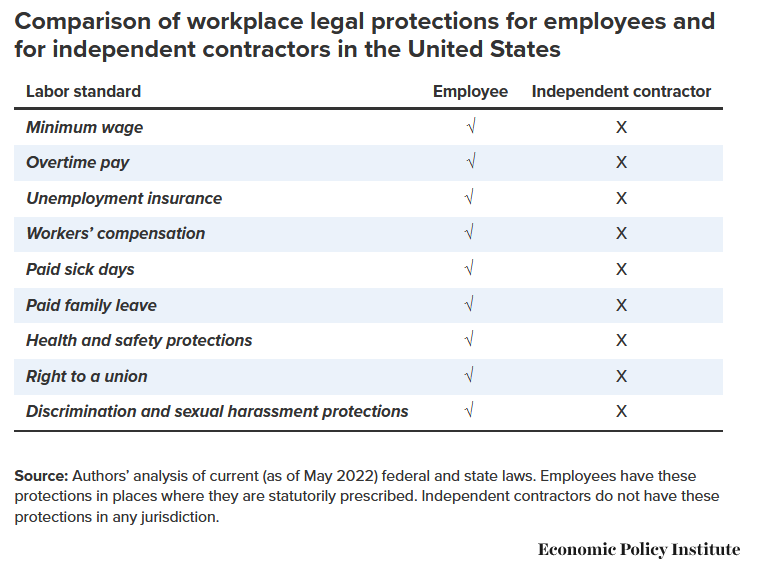"Gig" Economy Relegates Workers To Low Pay and Economic Insecurity
Report says one in five gig workers has gone hungry because they could not afford to buy food
The gig economy is a great business model for Uber, Lyft, DoorDash, Instacart, etc.
Workers are self-employed “independent contractors” who are ineligible for protection under federal and state labor laws because they aren’t employees. So app-based employers are not required to pay their workers the minimum wage, overtime, holiday pay, sick leave, workers compensation, unemployment benefits, etc.
Not surprisingly, the “gig” economy is not such a great deal for workers.
A report released Wednesday by the Economic Policy Institute (EPI), based on data from a national survey conducted in 2020 by The Shift Project a joint project of the Harvard Kennedy School and the University of California, San Francisco, showed:
One in seven gig workers (14%) earned less than the federal minimum wage on an hourly basis and more than a quarter (29%) earned less than the state minimum wage.
Thirty percent used the Supplementary Nutrition Assistance Program (SNAP) within a month of the survey, which is twice the rate of service-sector workers.
Nearly one-third (31%) of gig workers did not pay the full amount of their utility bills in the month prior to the survey.
The EPI says recent surveys estimate that from 16% to 35% of workers participate in the gig economy. The U.S. Bureau of Labor Statistics estimated in 2017 that “alternative work arrangements make up 10% of all employment.”
Based On Misclassifying Workers
The EPI says gig employers are misclassifying workers who would otherwise be entitled to protection under the Fair Labor Standards Act, and they are preventing workers from organizing into unions to demand better treatment.
“[A] business model that creates profit by denying workers basic wage and hour protections is far from inventive,” said Celine McNicholas, general counsel and director of policy and government affairs at EPI.
The EPI is calling upon policymakers to “address the reality of gig work and prevent these companies from denying their workers basic protections through misclassifying their workforce.”
Digital platform companies argue their business model allows individuals to be entrepreneurs and to set their own schedules, rather than adhere to a rigid employer-dictated schedule.
Politics Of The Gig Economy
Voters in California approved a ballot initiative in 2020 to permit app-based employers to classify their drivers under state law as “independent contractors.”


